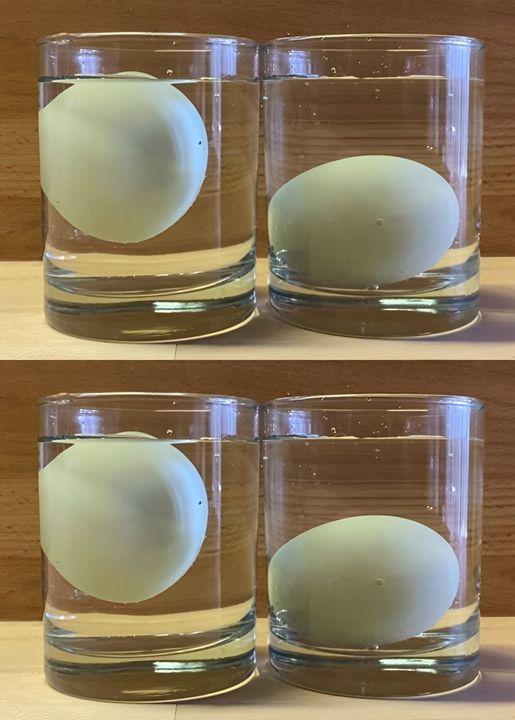ADVERTISEMENT
2. Smell Test
Your nose can help you identify spoiled eggs:
- Crack an egg into a bowl or plate.
- Take a sniff.
- Fresh eggs should have a light, grassy smell.
- If the egg emits a strong, unpleasant odor (like sulfur), it has gone bad.
3. Shake Test
The shake test can also indicate freshness:
- Hold the egg close to your ear and gently shake it.
- Fresh eggs should make little to no noise.
- If you hear a sloshing sound, the egg is likely spoiled.
4. Check the Expiration Date
Egg cartons often display a “sell-by” or “use-by” date. While this is a helpful guideline, eggs can still be safe to eat for some time past this date if stored properly.
1. Float Test
To check the freshness of your eggs, try the float test:
- Fill a bowl with water.
- Gently place the eggs in the water.
- Fresh eggs will sink and lie flat on the bottom.
- Slightly older eggs will stand upright on the bottom but are still safe to eat.
- Bad eggs will float to the top and should be discarded.
2. Smell Test
Your nose can help you identify spoiled eggs:
- Crack an egg into a bowl or plate.
- Take a sniff.
- Fresh eggs should have a light, grassy smell.
- If the egg emits a strong, unpleasant odor (like sulfur), it has gone bad.
Please Head Over To Next Page There Still More ,,,
ADVERTISEMENT
